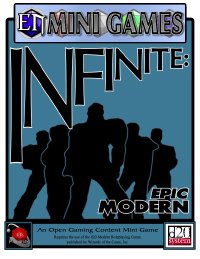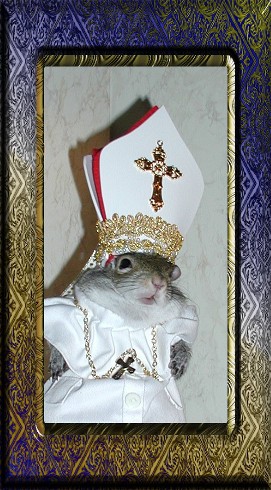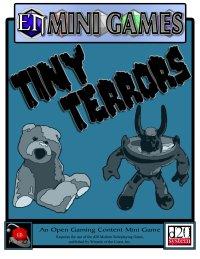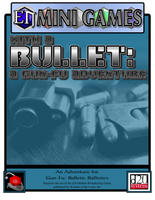One of the more interesting differences between Jackson's
Kong and the original is sexualizing of the story.
(there will be further spoilers in here, so Jill, you decide if you want to know more)
In the original, Fay Wray's body is presented front-and-center for the audience's appreciation. She is displayed in a near-explicit sexual fashion from the get-go (and she's reaching for what? An apple. Hm. Forbidden fruit, anyone?). Her initial encounter with Denham is handled in such a manner that their conversation could be interpreted (and indeed is interpreted by Darrow herself) as negotiation for sexual favours, and her presence on board the ship is marked by the display of her body.
Even an audience that isn't paying attention to these details is going to react to a beautiful woman standing around almost naked. She is vulnerable, she requires protection, and even more to the point, she is AVAILABLE. She's a mare in heat, and we are given the expectation that at some point, this filly will require mounting.
Not to be too crude about it.
But the voyage to Skull Island, in Cooper's film, sets up Ann not so much as a romantic partner for Jack (although that happens, of course, in one of my favourite 30's lines of all time: "Say, I guess I love you."), but as a sexually unfinished figure, as desire embodied without fulfillment.
Naomi Watts is not nearly so sexualised in Jackson's film. She is instead romanticised. Where Fay Wray reacts to Denham's pitch with stuttering confusion and uncertainty, Watts simply walks out on him. It's not at all clear that Wray's Darrow wouldn't have gone along with Denham even if he WAS a pimp. Watts is not subjected to hostility from sailors who distrust her sexuality; instead she partners up with them to perform vaudeville shows.
Once the monkey shows up, however, things are quite different.
Not in presentation; Wray is still relentlessly sexualised and her undressing by Kong probably ranks as one of the least likely stripteases in cinema. Not on the level of Saffron Burrows in
Deep Blue Sea, perhaps, but still it's pretty silly. We don't see anything that anthropomorphic in Jackson's film, as his Kong is as fully a gorilla as can be. Willis O'Brien's creation is honestly a very large, uneducated man with communication difficulties. And he undresses Fay Wray with the curious wonder of a boy learning how to unhook a bra for the first time.
But what actually happens in the story at this point flips the sexualization meter the other way. Now it's Jackson's film that gets all sexified. Wray is undressed by the ape, but then before Kong can (and here the mind fairly reels, as they say) consummate his burgeoning lust, she is snatched away from him by Driscoll's courageous rescue.
Watts' Darrow, however, finds a very different relationship with the big guy: she actually sleeps with him.
In Jackson's film we see Darrow and Kong in fact consummate their relationship. Well, we don't ACTUALLY see that happen, as this is a PG film (and the anatomical difficulties are, to say the least, intimidating), but they fall asleep together and she awakes in his embrace. Were he a human being, there would be almost no question that these two characters have become one overnight.
And big props to Naomi Watts for communicating this in the scene where Driscoll shows up to rescue her; we can see in her eyes that she's not immediately convinced she wants to leave. Kong has protected her, he's been an enthusiastic audience and he's shown her beauty and tenderness. That's frankly more than she's gotten from anyone else. She's found a real man at last.
Cooper's film does provide Wray's personification of sexual need with the fulfillment so desperately required -- she is engaged to Jack and so that story is all wrapped up. Phew. Filly has done been mounted. That sexualization that was so important to the early part of the film is withdrawn from the latter, and all that is left is the acting out of the rage of the jealous monkey. Jackson, on the other hand, maintains Kong as someone with a real connection to Ann. The only someone with a connection to her, who can draw her out of her hopeless life.
The original doesn't provide this interpretation. Kong is not a desirable mate in the 1933 film. He is an angry, jealous, 30-foot-tall stalker. He's a gigantic two-year-old throwing a tantrum because his toy has been taken away, and although we feel a connection to him, and even admire him for his unwillingness (or inability) to bow to necessity, we are not horror-stricken at his death. Cooper did not make a tragedy.
Jackson is trying to. It's a tough sell, because, you know, giant monkey fighting dinosaurs just isn't classic tragedy. And I'm not sure it works. Ann can't end up with Kong, and we can't feel too terrible that he's finally destroyed.
Because monkey love, ew.
And it just might be that the old standby of holding off on the consummation until the END of the story is the right choice, cinematically. When Kong plunges to his doom in Jackson's film, we can think, "Hey, at least he got to sleep with Naomi Watts." But in Cooper's film Kong is decidedly unfulfilled. He never acquires the civilizing relationship he needs, and somehow that makes his end MORE satisfying.
It's like John Woo's
Mission Impossible: 2, the first part of which is a remake of Hitchcock's
Notorious, with the exception that the spy sleeps with the girl right at the start of the film. I think they did this in
MI:2 because they thought it would strengthen the bond between guy and girl, but it has the opposite effect, and I think you could argue the same is true in
King Kong. Once our heroes get it on, a big part of the reason we're watching goes out the window.
The
Moonlighting effect, you might call it.
And monkey love is still ooky.





